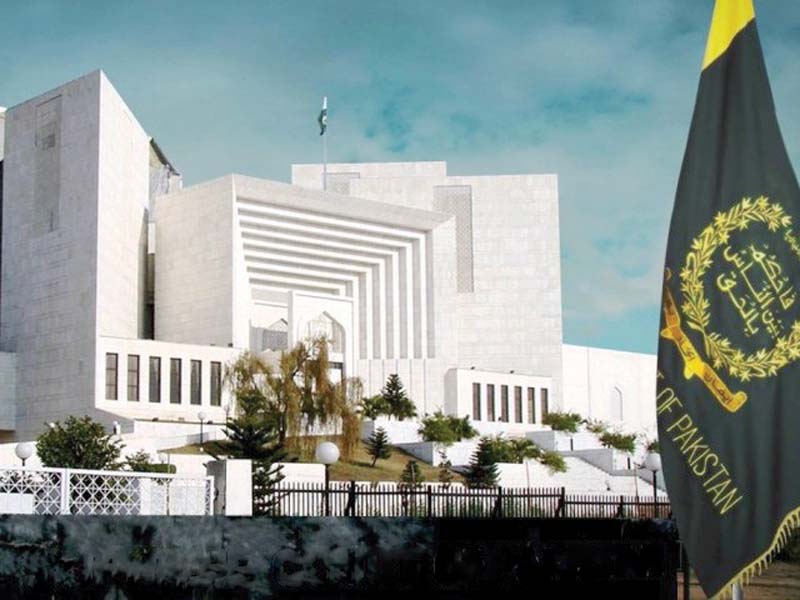
The court also observed that it is a cardinal principle of interpretation that laws should be interpreted in such a manner that they can be saved rather than destroyed. “The courts should lean in favour of upholding the constitutionality of legislation and it is thus incumbent upon the courts to be extremely reluctant to strike down laws as unconstitutional,” says the judgment issued by a three-member bench, headed by Chief Justice of Pakistan Mian Saqib Nisar and comprising by Justice Mushir Alam and Justice Sajjad Ali Shah, on Wednesday.
The bench has rejected all the petitions against high courts verdicts to uphold the Industrial Relations Act 2012 (IRA) on the grounds that the same is incompetently enacted by Parliament as the subject of labour and the trade unions was no longer in the legislative domain of the Parliament, but rather fell within the domain of the provincial assemblies.
Senior lawyers Khalid Anwar and Dr Farogh Nasim represented different corporations opposed to the IRA. On the other hand, Makhoom Ali Khan and Rasheed A Rizvi argued on behalf of the unions. The verdict goes in favour of the unions.
Legal experts believe the judgment is good for the federation and will enable it to act as a bridge between the provinces and plug a legislative gap. It also provides workers in interprovincial organisations with a remedy before the Federal NIRC, which they previously lacked.
The court held that when a law is enacted by Parliament, the presumption lies that Parliament has competently enacted it, and if the same law is challenged, the burden always lies upon the person making such a challenge to show that the law violates any fundamental rights or provisions of the Constitution.
SC upholds regularisation of PSO employees’ services
Justice Mian Saqib Nisar, while authoring the 54-page verdict, says that the federal legislature does, but the provincial legislatures do not, have legislative competence to legislate to regulate trade unions functioning at trans-provincial level.
The judgment further says that matters relating to trade unions and labour disputes, having been dealt with and protected under international conventions, are covered under entries 3 and 32 of Part-I of the FLL. Thus, the Federal Legislature has legislative competence to legislate in this regard.
The court says that the IRA neither defeats the objectives of the 18th Amendment to the Constitution nor does it destroy or usurp provincial autonomy. Likewise, the IRA has been validly enacted by Parliament and is Constitutional.
The verdict further says that the workers of the establishments and industries functioning in Islamabad Capital Territory or carrying on business in more than one province shall be governed by the IRA, whereas workers at establishments and industries functioning or carrying on business solely within the territorial limits of a single province shall be governed by the concerned provincial legislation.
“We have held that the IRA is a valid piece of legislation. It is held that the National Industrial Relations Commission (NIRC) formed under Section 35 of the IRA has jurisdiction to decide labour disputes, etc, relating to the employees and workers of companies, corporations, institutions, and establishments functioning in more than one province,” says the judgment.
Govt to challenge Elections Act judgement
The court also held that the IRA, being a procedural law, would be retrospectively applicable with effect from May 1, 2010, when the IRO 2008 ceased to exist, and also that Shaheen Airport Services is not a charitable organization, meaning the IRA is applicable to it as the company is operating in more than one province.
The CJP has also referred to a 2015 verdict wherein it was held that “the power to strike down or declare a legislative enactment void…has to be exercised with a great...care and caution. The courts are one of the three coordinate institutions of the state and can only perform this solemn obligation in the exercise of their duty to uphold the Constitution. This power is exercised not because the judiciary is an institution superior to the legislature or the executive, but because it is bound by its oath to uphold, preserve and protect the Constitution. It must enforce the Constitution as the Supreme Law, but this duty must be performed with due care and caution and only when there is no other alternative.”

1726739452-0/Express-Tribune-Web-(10)1726739452-0-165x106.webp)


1728386780-0/BeFunky-collage-(38)1728386780-0-165x106.webp)












COMMENTS
Comments are moderated and generally will be posted if they are on-topic and not abusive.
For more information, please see our Comments FAQ